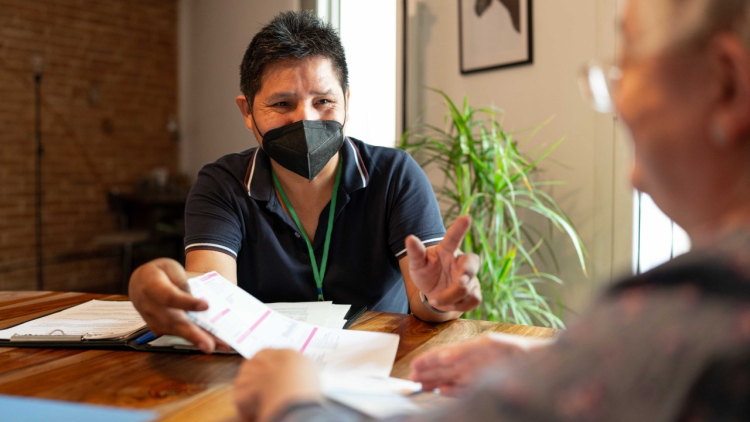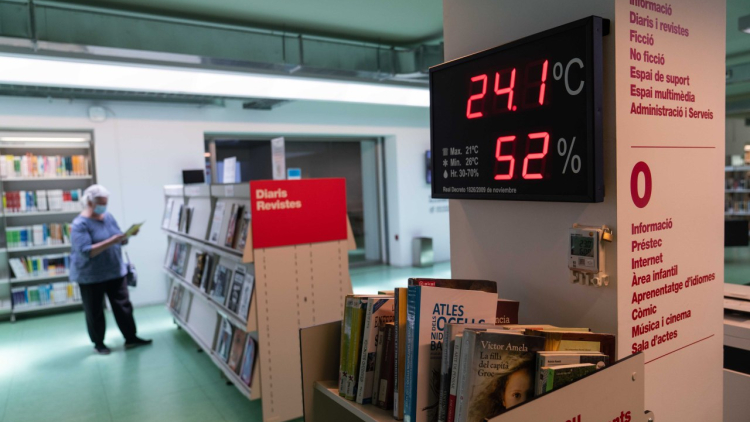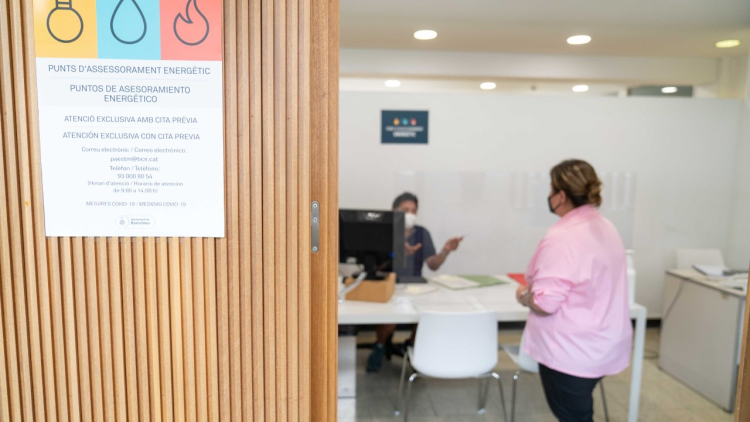Climate justice
Poverty and inequality reduce human capacity to cope with climate change, as most adaptation options depend on resources. Droughts, floods, heat waves and other consequences of climate change affect most those who are least able to anticipate risks and then recover from damage.
Climate change is unfair, also in Barcelona. The population of Barcelona is especially vulnerable to climate change, given its geographical location in the Mediterranean, because it has a very old population, and a very high percentage of people in a situation of energy poverty. Therefore, in addition to addressing the reduction of emissions, adaptation and climate justice measures must be implemented. The challenges to face climate change are not only to protect and restore ecosystems, change energy sources and adapt economic activities to reduce their impact on the environment. They also involve strengthening social justice, reducing inequality and poverty and guaranteeing decent livelihoods for the entire population.
Unequal impacts of climate change in Barcelona
Climate change affects health and quality of life, but it doesn't affect everyone in the same way. Factors such as physical condition, health, age, gender, socioeconomic situation, or the conditions of the environments where they live, and work condition the possible degree of impact of climate change.
The impacts of climate change also vary by city district, as they depend on factors such as the condition of buildings, the presence and type of vegetation, the percentage of impervious surfaces, urban density, the dispersion of heat sources, and socioeconomic conditions.
Heat waves and extreme temperatures have negative effects on people's health and, above all, on the groups most vulnerable to suffering the consequences of high temperatures. In this way, reducing the risk of heat, especially for the most vulnerable groups, becomes a key public health and climate justice issue.
In Barcelona, it is estimated that 24% of households are at risk of energy poverty. According to the Public Health Agency of Barcelona, energy poverty affects more women and people born in countries with lower-middle income levels. In terms of territorial distribution, energy poverty is more present in the districts of Ciutat Vella, Sants-Montjuïc and Nou Barris.
Inclusive climate actions
With the aim of improving the resilience of the city and especially of the communities most vulnerable to climate change, we work to guarantee the continuity of services and universal access to basic services, guarantee thermal comfort both inside buildings and in public space, and improve and adapt services to the most vulnerable people.
In addition, Barcelona collaborates with other cities in the C40 Cities Network Open in a new window to promote climate justice initiatives and inclusive climate actions. For example, in May 2022 Barcelona City Council and C40 Cities organized the Inclusive Climate Action Academy. In this meeting the cities of Barcelona, Buenos Aires, London, Paris, Salvador, Seattle and Warsaw shared experiences to tackle energy poverty and build resilience. These good practices are collected in this C40 'City Storybook' Open in a new window report.
Climate shelter network
The Climate Shelter Network makes available to citizens different municipal facilities and green spaces that allow residents to take refuge from high temperatures.
These facilities (which maintain their ordinary activity) can be indoor such as libraries, sports centers, civic centers, schools, etc.; and open green spaces, such as urban parks with a certain degree of predominance of vegetation and water elements. All these facilities are accessible for people with reduced mobility and have water and sitting areas available. More information on the Climate Shelter Network’s website.
Training in energy poverty and climate resilience for people who care for people
A specific training has been designed for caregivers and home care providers to promote knowledge and skills to identify situations of hidden energy poverty and inadequate thermal comfort in the homes of dependent people. In this way, care providers and home care workers can act directly or refer people who they support to services such as Energy Advice Points Open in a new window (PAEs). Staff members of the Home Care Service Open in a new window and Vila Veina Open in a new window as well as volunteers of programs such as Radars have been able to participate.
A facilitation guide has been developed for care provider organizations so that they can replicate the training with their teams of professionals and volunteers.
These three videos, aimed at both caregivers and those who receive it, summarize the key ideas of the training.
Reinforcement of Energy Advisory Points
Barcelona’s Energy Advisory Points (EAP Open in a new window), distributed throughout the city districts, offer information on how to reduce bills, improve the energy efficiency of households and on the grants and services available for this purpose or for the incorporation of solar energy installations in buildings. In some cases, they offer support to avoid cutting off the supply of basic services.
A specific training has developed to strengthen the EAP so that they can offer information and advice to users on the following issues related to climate change:
- Productive roofs (green, agricultural, cistern, and energy roofs)
- Housing retrofit (energy efficiency)
- Heat-related health risk prevention
Diagnosis of thermal comfort in care homes for the elderly and people with disabilities
Barcelona is a very ageing city (21.3% of the population is over 65), and the older population is more vulnerable to climate-induced effects, as they are more likely to suffer from chronic diseases and a limited ability to quickly adapt their behaviors and/or environments to stay cool.
Older people living in care homes may also be affected during heat episodes. Considering that older people spend much of their time indoors, their exposure to heat is largely governed by the indoor environment. In the case of poorly designed buildings, ineffective thermal management and divergent needs and preferences between staff and residents can contribute to increased exposure to heat with detrimental consequences for the health of the most vulnerable residents.
Barcelona City Council, has started a line of work that aims to analyze the current situation of these facilities and improve their thermal comfort.
Many cities are facing rapid growth in the number and proportion of older people, which is putting pressure on health and care services. Improving care for older people is therefore a vital strategy for building climate resilience. This report Open in a new window examines how aging, care, and the climate emergency intersect in cities and suggests an initial framework for addressing climate and care crises.




